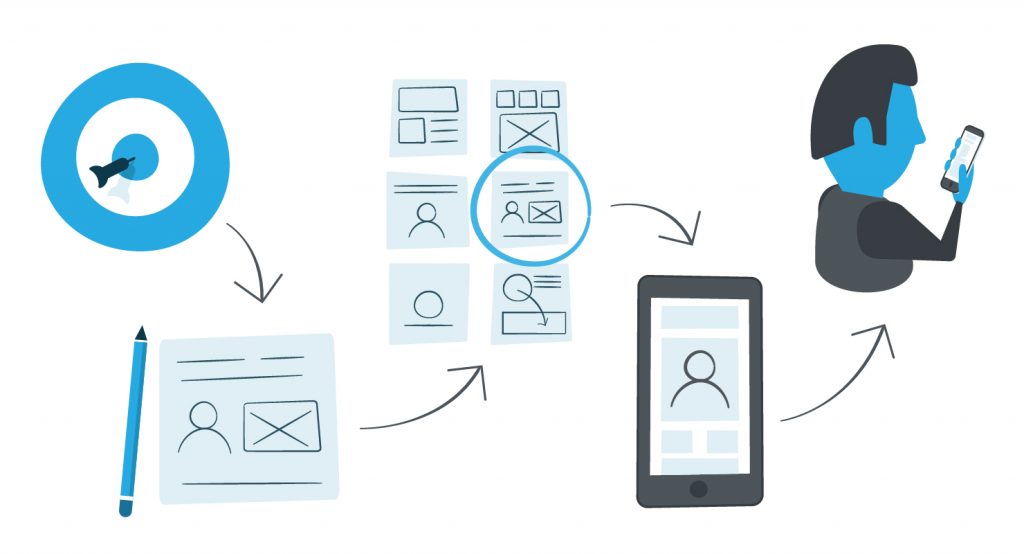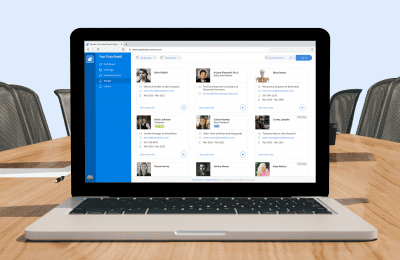How much does it cost to develop an app?
Apps run our lives. I use an app to read my emails, track my nutrition, and look at pictures, as Apple proclaimed “there’s an app for that.”
If you want to solve problems, creating an app can be a great way to do it. But, is building an app right for you?
First we’ll look at how you can be sure your app idea is ready for market and then we’ll discuss what will affect its cost.
Do You Need an App?
Thousands of apps languish at the bottom of the app store with a few hundred downloads. Think of the dollars and time wasted on them. You don’t want to waste time or money. So, what can you do?
To decide whether you should pursue your app, try answering these five questions. If you say yes to all them, then you should keep exploring your app concept.
- Will this app save you employee time, bring in more revenue, or improve on your current solution? Make sure the return on investment is high enough to be worth your time.
- Is there currently a product on the market with the same functionality as the app you want to develop? It’s easier to use pre-existing code or Saas (software as a service) to test your idea or skip development.
- Do you need full control and ownership of the app? Sometimes you’ll need full ownership to meet organizational requirements.
- Would a web app work just as well? If your app doesn’t need to be used offline or leverage device sensors, then a web app can be a more affordable route.
- Is speed and reliability essential to achieving your app’s goal? Web apps are great, but poor connectivity can affect their operation.
After answering these questions, does your app still seem like a good idea? If you aren’t sure, then consider running a design sprint. This will allow you to mock-up your idea and test it on real users to see how it works.
Now that you know you’re onto something, what factors will affect how much your app costs to develop?
What Will Affect My App Development Cost?
Just like any other product, an app’s cost is affected by complexity, availability, and timeline. Let’s look at how each one of these factors can play a role in your app’s development.
Complexity. Using user accounts, device sensors, and third-party services all make your app more complex. If your app concept isn’t well-defined this will make development more complex.
Platforms. The platform that you develop your app on will affect its cost. Creating a web app uses simple programming languages. A mobile app uses more complex languages, and developing native apps for both Android and ios adds to this. Since fewer programmers are able to develop mobile apps, they’re in higher demand, which will increase how much you spend on human resources.
Timeline. Being in a rush makes for a more expensive project. Short deadlines add pressure and may require overtime or turning down other work to hit your deadlines.
These three factors can have a big impact on how much your app will cost. The first two will also affect your timeline. But, what does a typical app cost to develop?
The typical cost for an app is higher than a website. A simple app might start at $50,000, while a more complex one can go well over $100,000. Given the size of this investment, how can you make sure your time and money is well-spent?
How Should I Start Developing My App?
Before embarking on a major app development project, you need to test your concept. Ideas can look great in our imagination, but what we imagine doesn’t always work out how we expect.
The solution is to prototype quickly and test. This will show you what adjustments need to be made before investing in the app. This can save months of work and thousands of dollars.
To achieve these results, consider running a design sprint. This process lets you work closely with the team that will develop your app, create a prototype, test it, and roll everything you learned into your app.

The five-day process looks like this:
- Monday: Choose a long-term goal, map the challenge, consult with experts, and pick a target for the week.
- Tuesday: Improve on the current solutions, then have each participant sketch a solution.
- Wednesday: Critique the solutions and pick the best ones, weave these into a storyboard of the app.
- Thursday: Create a prototype that only includes the client-facing side of the app.
- Friday: Interview customers and see how they interact with the prototype to confirm that it provides a valid solution.
A design sprint is a fast way to make sure you’re on the right track. In general, it will make up 10-20% of the total cost of your app. But, it is one of the most important parts of your project. This strategy will become the cornerstone of your entire project.
Taking the First Step
At this point you know whether you actually need an app, the factors that affect cost, and the basic process. Are you ready to take the first step? Set up an appointment and we’ll help you find the best approach for your app or consider hiring us for a design sprint.



